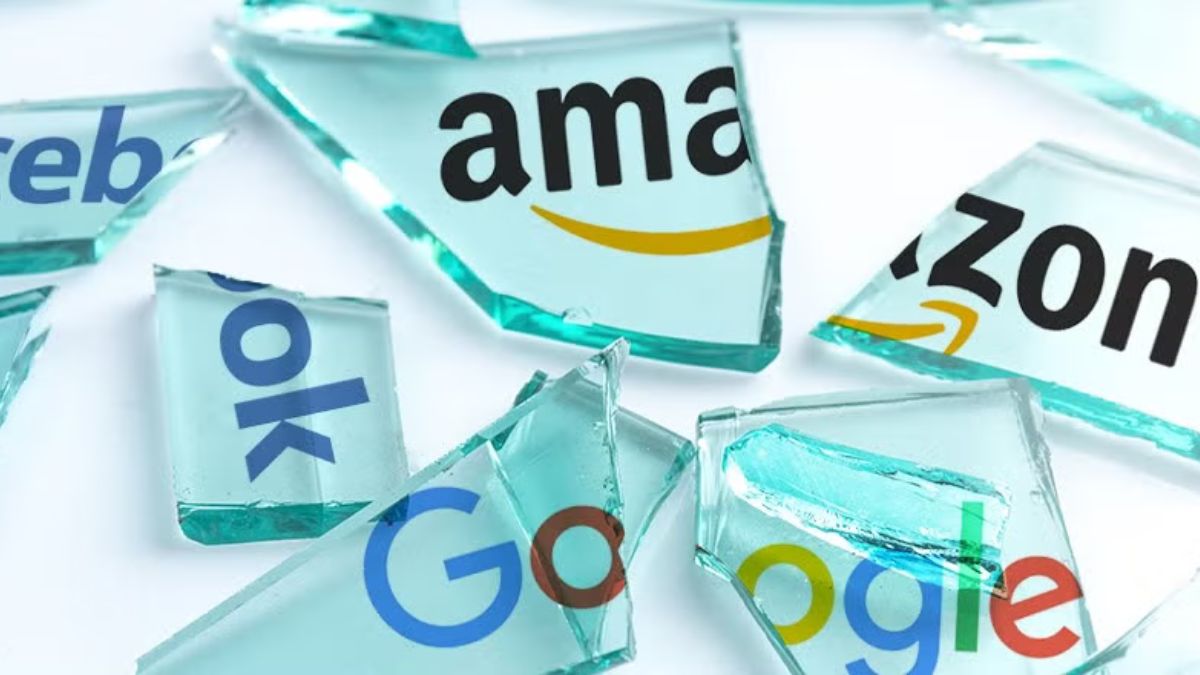When Greed Wears a Hoodie
Here we are again. Big Tech, bloated with power and money, finally dragged to court like a mob boss in a tailored suit pretending to be your friendly neighborhood disruptor.
Let me jog your memory. The last serious courtroom attempt to chop a tech titan in half was in the late ’90s, when Microsoft—yes, the same company now playing “AI savior”—was found guilty of choking the life out of its software competition. A federal judge said, “Split ‘em!” But surprise, surprise—the appeals court chickened out, calling that remedy “rarely certain.” Translation: “We’re too scared to upset the billionaires.”
Fast forward 25 years, and here we are again—same circus, different clowns. This month, two heavyweight legal bouts are happening in Washington. In one corner, the Federal Trade Commission (FTC) is accusing Meta (you know, Facebook’s rebranded face-lift) of strangling social media competition by swallowing up Instagram and WhatsApp. They want those apps pried loose from Zuckerberg’s iron grip.
In the other courtroom, the Justice Department is taking a swing at Google. Their argument? Google has turned internet search into its private fiefdom, locking down the digital world with Chrome and Android as its enforcers.
You’d think we’d learn from history. But history, it seems, is on a repeating loop.
The Government vs. The Algorithms
Let’s talk about the main event: Meta. According to the FTC, Zuckerberg didn’t just buy Instagram and WhatsApp because he liked the filters or needed another messaging app. He bought them to squash them. To neutralize them. To protect the mothership: Facebook.
Meta’s response? “But look how well they’re doing now!” That’s like a mobster saying, “Sure, I took over the bakery—but hey, business is booming!” Not really the point.
As legal fireworks fly, the government wants to force Meta to sell off both apps. It’s not about punishing success—it’s about blocking the dirty tricks that keep new players from entering the field.
Meanwhile, over at Google HQ, things aren’t looking peachy either. In August, Judge Amit Mehta ruled that Google had illegally used its monopoly powers to keep a stranglehold on search. Now, the feds want Chrome sold off and Android stripped of its anti-competition claws.
Google is throwing a fit. Their lawyers claim the government’s proposal is “wildly overboard.” That’s rich, coming from the company that basically owns the internet. They say breaking them up would “harm consumers.” Oh really? Like how they’re harmed when they don’t even realize they have no choice?
Breakups: Not Just for Lovers
Let’s not pretend these breakups are radical ideas. America’s been doing it since Rockefeller ruled oil like a 19th-century Bond villain. Standard Oil was split into 34 parts in 1911. Spoiler alert: many of those “parts” later morphed into ExxonMobil, Chevron, and other modern oil overlords. So, yeah, the breakups worked—until they didn’t.
Then there was AT&T, split into seven “Baby Bells” in the 1980s. That move finally opened up telecom for competition. You got to choose your long-distance carrier and buy your own phone. Sounds quaint now, but it was revolutionary then.
Sometimes breakups don’t even require an axe—just a little nudge. In 1969, IBM was forced to sell its software separately from hardware, paving the way for a little upstart called Microsoft to thrive.
Ironically, Microsoft was later accused of being the new IBM. Full circle, huh?
In the end, Microsoft avoided a breakup. But the lawsuit still forced it to stop bullying computer makers into shutting out rivals. That opened the door for others—like Google. How’s that for poetic justice?
Why Courts Matter (Even When They Move Like Molasses)
Here’s the uncomfortable truth: court cases move slow. Appeals stretch for years. And if the judge does order a breakup, you can bet Meta and Google will scream all the way to the Supreme Court.
But slowness isn’t the real danger—it’s timidity. Judges often act like economists with stage fright. Take Justice Neil Gorsuch, who recently wrote that judges shouldn’t try to be “central planners.” That’s a fancy way of saying “Let’s not rock the boat.” But what if the boat’s on fire?
When companies have this much power—over what we see, what we buy, how we communicate—standing still is not neutral. It’s surrender.
Silicon Valley’s Not So Shiny Armor
Let’s be clear: this isn’t about hating tech. It’s about loving competition, innovation, and fairness—words tech billionaires love to throw around while crushing anyone who threatens their throne.
Meta says TikTok proves there’s competition. Cute argument. That’s like a landlord saying “Look, one squatter made it—so we’re not blocking people!” It doesn’t change the fact that the field is rigged.
And Google? They argue people love their products. Maybe they do. But when every road leads to your shop, that’s not popularity—it’s monopoly.
If Chrome and Android are just tools, why does Google fight so hard to keep them glued to its search engine? Because it’s not about users—it’s about control.
The Bigger Picture: Who Runs the Internet?
This isn’t just a courtroom brawl—it’s a reckoning. Tech companies were once the scrappy rebels. Now they’re the emperors. And emperors rarely surrender power without a fight.
But here’s the kicker: if the government wins, it could actually free innovation again. It could make space for the next Instagram, the next WhatsApp, the next search engine that doesn’t sell your data before you even hit “enter.”
Breakups aren’t a magic bullet. But they’re better than letting these companies write their own rules forever.
A Closing Rant (You Earned It)
If you’re still reading, bless your soul. You’ve sat through the legal sausage-making because you know this stuff matters. Because monopolies aren’t just bad for business—they’re bad for democracy.
When a handful of CEOs control what billions of people see, say, buy, and believe, you don’t have a free market. You have a digital dictatorship with better branding.
It’s time we stop treating tech giants like untouchable wizards. They’re companies. They play dirty. They should be held accountable.
Break them up. Shake the tree. And let’s see what grows when sunlight actually reaches the ground again.




